
This review may contain spoilers
How to torture your lover
Look I’m very conflicted about this drama because there were so many great things in it, but the plot and the ending were diabolical.Okay the good things are pretty well covered in the top reviews. The acting, some of the dialogue, the flirting, the character delineation, the costumes, the fight choreography etc. All totally excellent, and they will carry you through the abomination that is the plot. If you are fond of repeated gotcha moments then this is a supreme example. If you are charitable you can call them plot twists, but tbh, there’s nothing sophisticated about them. People die, oh no they don’t… repeatedly. Multiple times characters are at death’s door and bounce back in no time. Our heroes loose their qi but somehow still manage to fight spectacularly well. Minor bit part characters in the first 20 episodes, suddenly become key characters for 4 episodes then disappear again, leaving you thinking, who tf was that. Totally unheard of characters, suddenly appear out of nowhere and claim to be old, inseparable bosom buddies of our protagonist. The convenience factor is 24/7 availability and for me it just sucked.
Spoilers follow: -
Two days later, I’m still furious about the ending. What sort of person, who supposedly loves their soulmate would put them through the sort of torture which they were too generous to impose on their enemies. So you get to live at the expense of the one you cannot live without. And you’re stuck in this god forsaken place all winter, totally alone with their dead body. Please someone, tell me I’ve got this wrong. The more I think about it, the worse it gets. The armoury was such a nothing ending. What the heck was wrong with them both dying at the end of episode 35?
Ok rant over, now I’ve got decide how to rate this. Should it be 6.5, because it’s flawed, or should I be generous with an 8, because there was some really excellent stuff? Ok, compromise at 7.5…
Was this review helpful to you?

Fortunately its charm outweighs its clumsiness.
Any writer can only bow their heads in the face of a good plot. Even when that plot is a contortionist that twists itself up in knots so convoluted that it frequently farts in its own face. Look, it’s not that the plot isn’t riddled with holes, like a machine gun just ploughed through it. It’s rather that the resilience, ingenuity and convenient co-incidences just keep on coming—relentlessly. The stakes gradually climb higher and higher and the twists keep pace. Until the last few episodes that is. It needed a better run to the finish line, but I’ll forgive it that, it had provided much along the way. The outlandish is at such a delicious level that it is impossible to look away. Your mouth simply drops open to consume the next morsel. Expect the ridiculous and you won’t ever be disappointed.If the overall plot was good, the structure and flow of it was lacking. The story really comprises two parts. Set in different places with different characters and could easily have been split into two series. Whilst the connection between them was tied up by the end it was not the most satisfying experience and the set up was in anticipation of a continuing story. A viewers interest in a character is directly proportional to the screen time it gets, and when they are not seen for long stretches they begin to seem increasingly irrelevant. Some characters were on very long leashes and I was left wondering where the hell they were and what were they doing in the gaps. There was an annoying sense of convenience at times.
The drama comes complete with a wonderful set of unlikely characters . A hero whose life everyone (friend and foe alike) ends up saving at some point. He jolts along like a rumbling coach magically acquiring fighting skills/powers and poisons, all whilst keeping his clothes pristine. Swoon-worthy side kicks abound, of particular note is Uncle Wu Zhu (Tong Meng Chi) and The Second Prince (Liu Duan Dan) and there are plenty of older examples for the more mature amongst us. Caught up in the abundance of flying, floating, fighting men/women (like half the population), there’s a sibling to Darth Vader who can take on a thousand and win, and who was so incognito he didn’t even appear in the cast list. Plus a wheelchair that surely should have been made of light, comfortable, flexible bamboo, not solid oak. Really, the props department let us down there. And I am thinking Wu Gang must have had bruised buttock bones for most of the shoot.
Sadly, however, I can’t say that the female characters were much to write home about, aside that is from the delightful Haitang Duo Duo (Xin Zhi Lei). Be prepared for a female lead that can compete with a wet weekend and come out top, a sister who is very determined and totally ineffectual and an evil princess whose only redeeming feature was her headdresses.
To be honest the connection to the “otherworld” didn’t really work for me. I found it unnecessary and so infrequently referenced that when it did become important it stuck out like a business suit at a hanbok party.
Is it the most sophisticated, clever drama that I have ever seen? Well, no… Is it rollicking good fun, a hearty meal and a laugh with friends? You betcha!
Was this review helpful to you?
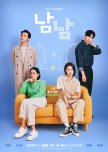
A very watchable production in a difficult to get right genre.
What I like is that this show presents something different, it wasn’t perfect but it was refreshing. The weight is absolutely on the character interactions and with plenty of quirkiness below the surface there is no lack of material to work with.It occupies the sort of territory that Summer Strike tried to do, but does it much more successfully. Sitting in the overlap of a Venn diagram that includes the genre sets: slice of life, romance, crime mystery, drama and comedy. The cost of inhabiting this territory is that nothing is really dominant and arresting for your attention and the overall effect is a kind of bumbling along warm and fuzzy.
It probably worked better as a webtoon, delivered in bite sized chunks, where the overall flow of the narrative was not so important. Although there was an ongoing plot, it didn’t quite have the punch that it could have had as the relationships took precedence. Neither did it venture into too much darkness, preferring half-lit shadows for its tone. It was slow to take off and the pacing in general is uneven. It sort of lurches along and when it does eventually bite, it’s more of a nip at the ankles than a chunk out of your leg.
The characters are what carry this piece and they have light and shade too, which is what makes them interesting and relatable. I can imagine that some people may find the character Park Jin Hong (older ML) a little creepy at first but he was played with sincerity by Ann Jae Wook. The mother, excellently played by Joon Hae Jin, is an imperfect character whom some viewers might take exception to. I warmed to her, even though I didn't necessarily like her. Her relationship with her daughter played by Choi Soo Young, was especially good, both in the writing and the acting. The rest of the support cast also played their roles convincingly.
The comedy is not overcooked and there are plenty of laugh-out-loud moments to lighten the mood and carry you along. The romance is gentle and the melo was handled with sensitivity, especially at the end. The cinematography and OST follow suit being pleasing but nothing spectacular.
High five to the director for finding the right note and not overplaying his hand. This is the first time I have seen his work. The writer, Min Sun Ae, has no other credits listed on MDL. If this was a first outing for her then I think she did a very creditable job with dialogue if not the pacing.
Overall I liked this drama. It’s not a stand-out special but weighs in as a watchable drama in a blended genre that is difficult to get right.
What my rating means: 8+ A great drama with interesting content and good writing, direction, acting, OST, cinematography. But didn’t quite have the requisite sparkle to bump it into my all-time fave list. Worth watching.
Was this review helpful to you?
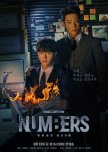
Sexed up Corporate Finance
In an imperfect world where your capital is reputation, of necessity the currency must be moral ambiguity. Honesty and compassion come at a price and the decision about who is going to pay that becomes a war of survival. This formed the core of the plot and was explored through the attitudes of the various characters who ranged from deepest black through shades of grey to the blinding light of our hero. There was not a great deal of subtlety in the exposition of this theme which often felt contrived, but it did offer you plenty to think and reflect on.This is a new angle on corruption for me and perhaps for K-drama land. The introduction of a new world requires explanations that don’t have to be made where the viewer is already familiar with procedures, concepts and terminology (for instance in the police). So the script is necessarily clunky and unrealistic as the actors are required to provide a Corporate Finance for Dummies guide to the tangled complexities of accountancy. So expect to pay attention to keep up with the threats going down in the plot. (Unless, of course, you’re a certified corporate accountant, and then you can snort and laugh your way through the inevitable distortions of drama-la-la-land.) But for most of us there will be Side Effects—머리 아프다 (my head hurts).
It gets away with a lot of OTT stuff because tbh I was concentrating so hard on what was going down that I didn’t have enough brain power to clock all the sleights of hand and magical illusions going on. But of course, we are gifted with a spectacularly clever rookie ML who manages to navigate some fairly incredible situations in this tightly plotted thriller. The end is never really in doubt, and the great reveal half way through is about as surprising as porridge for breakfast, but it manages to create a thrilling ride nevertheless. Until the ending that is. Wtf were the last two episodes? Totally random. Totally unsatisfying. Totally messed up.
I liked some of the performances in this, notably L (Kim Myung Soo) who turned in a great angry young man and Choi Jin Hyun as his sunbae. Unfortunately the female parts had less depth and relied more on caricature but the relationship between Yeonwoo and L had it’s sweet moments.
Not compulsive viewing but an honourable rating which deems it worth watching mid-week after a long hard day.
Was this review helpful to you?
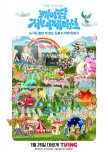
So much more than just the music
This documentary series describes the K-Pop industry from the inside through interviews with the professionals embedded within it. So they tell the story they want us to hear it and it is how they tell it to themselves. It is not designed to be an exposé, so don’t expect it to poke the vulnerable underbelly. K-Pop from the outside in gets an airing in Ep 6 but it was the least interesting episode and opportunities for insightful constructive critique were largely missed. Having said that, it is a serious piece of work that is thoughtfully structured, clearly developed and well worth watching.I first got introduced to K-Pop about four years ago, so for me this was an interesting and informative series that provoked a lot of thought. As a long-time consumer of so-called western music and the business models and culture around it, it was really helpful to get an insight like this and confirmed that you cannot look at K-Pop through a western lens, it has to be understood on its own terms. Believe me, Stock Aitken Waterman were just rugrats fumbling with Duplo compared to their contemporary, Lee Soo Man, when he set up SM Entertainment and began conceptualising and building on a Lego Masters scale.
The series reflects on every aspect of the business of K-Pop and the culture it has spawned and is embedded in. From its history to the current world of fandom, how the music is composed, the choreography designed, the idols trained. It explores the clever exploitation of the market and the development of globalisation and how that impacts and changes the domestic market and attitudes. In the final episode it opens windows onto the future and K-Pop’s place in the wider context of a world uniting through digital technology.
The impact of COVID created opportunities for agencies in the sphere of digital marketing and digital creativity. They systematically exploited them to find ways of “connecting to each other directly…that people kind of enter this K-Pop universe that they can experience and enjoy. It’s almost like an immersive metaverse but in real life.” This technological revolution is blurring the distinctions between fans and idols and pushing it down the road of the illusion of a special and “private” reality that includes AI video-game inspired group members. But it is also opening up possibilities for creating like-minded global politico-social action groups that look outwards into the real world to effect change. As one interviewee says “K-Pop agencies are actively leading the industry beyond music”.
The mental pressure on everyone, but particularly the performers, is mentioned fleetingly in Ep 3, but the response (from a sunbae idol) was to push yourself harder. The ethic of always working harder to be better and attain perfection, which is a deliberate selection criteria subsequently nurtured by the agencies, also means that they are selecting for certain types of mental health issues. As was explicitly stated in the documentary, you need to have a certain personality type to survive in this industry. Watching this soon after the tragic death of Moon Bin was particularly poignant and the failure to address this elephant in the room was a glaring shortcoming in the series.
The series provides a great deal to reflect on in terms of how music relates to and reflects the current needs and dreams of society. And how the fundamental nature of business to exploit opportunities for gain has shaped and continues to shape and expand the music industry.
Was this review helpful to you?
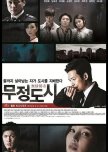
Rich characters with an intricate but tangled plot.
When there’s nothing much on the table it’s time to plunder the back catalogue and this one from 2013 is definitely a find. Jung Kyung Ho makes a much better crim than a crush and here he shows off his delicious mean side.What makes this thriller both unusual and worth watching are the performances and the characters. Especially the central trio played by Jung Kyung Ho, Kim Yoo Mi and Choi Moo Sung who put in top notch all-round characterisations. Very few of the characters are two dimensional and the writer, Yoo Sung Yeol, has beautifully crafted the interrelationships that bind the story together. The characters are nuanced and ambiguous rather than good and bad, and what side you are on is not what’s important here. Conflicting loyalties and debts of gratitude jostle with temptations and sacrifices on all sides of the fence.
It was something I had to eat slowly, like a rich chocolate sauce, one mouthful at a time. It makes demands on you to keep up and I like that. Nothing kills the tension more than explaining every twitch and smile. It ups the rewatch value to the maximum, because there is so much in it that is only half-understood. However, although the plot is a good setup, it borders on being way too clever and incestuous—yep that’s the only word for it and you’ll understand if you watch it. For me, in order to accept the incredible in a drama and suspend my disbelief, it needs to be in a balanced proportion and this one repeatedly flirted with the boundaries of credibility, especially in the first half (or maybe I just got used to it later on). However the plot is intricately designed and written (high five to the writer) and fundamentally very good, so I was willing to go the extra mile for it, in spite of the numerous eye-rolling occasions that frustrated and annoyed me. If you do go with it, it offers enough clever opportunities to wind you up like a coiled spring and send you spinning off in various directions.
There is a lot of violence and perhaps too much of it, especially in the early episodes, appears contrived and manipulated in order to increase the threat and tension. I don’t think it really needs to do that. It had enough guts in the basic premise and execution to keep you interested without having to resort to cheap tricks. I lost track of the body count at around episode 5, and it continued on. Hence the large number of small supporting roles, otherwise they would have had no choice but to chew through all the leads half way through!
The camera loves all of the faces in this drama and there’s a bucket-load of opportunities for the actors to show off their micro-expressions to good effect. The directing allows time for these revelations and they add greatly to the depth and tension of the drama. The production values really create the moody, dark backdrop so well, with great OST and lighting.
This is a hard one to rate, because when it’s good it’s very, very good, but the plot has so many impossible escapes, incredible coincidences and gaping holes that it can only be realised with huge compromises around credibility. Look it’s way better than average and well worth watching, so I’ll up the rating, but it comes with caveats.
What my rating means: 8+ A great drama with interesting content and good writing, direction, acting, OST, cinematography. But didn’t quite have the requisite sparkle to bump it into my all-time fave list. Worth watching.
Was this review helpful to you?

Great start but fails to live up to early promise
Quirky. This show revels in being slightly off its face all the time. The sort of drunk where everything seems to be totally spot on and making perfect sense to you, but from the outside it really doesn’t hang together coherently in any way at all. So you need to join Koo in her permanent drunken stupor and follow it all from the inside, just accepting the strange leaps of logic and weird dream fantasies. Then it’s a lot of fun and after a couple of episodes things begin to coalesce.There’s a good villain well played by Kim Hye Joon, and the whole thing has a gorgeous surreal edge to it. Whilst it has obviously taken a heap of inspiration from “Killing Eve”, it has not just copied blindly but found it’s own path and its own cast of characters. Personally, I had a particularly soft spot for Santa. But all of them have something going for them and there’s some great team dynamics.
However, about half way through there were some plot twists and scenes which were somewhat clumsy and things began to seem like a bit of a tangled mess rather than deftly woven threads and the whole thing lost some credibility for me. The pacing was off with long parts that were too detailed and I lost interest and had to push through a bit. Then they rebooted and things came together again in a sort of meandering plot with too many characters to focus on and the necessity for lots of backstory explainy bits, so that it didn’t sustain its early promise.
Perhaps I was looking for some better character development and there were some missed opportunities for more sparks/interactions and relationship development between the female leads. Overall though, there were other good character interactions on all sides and this was definitely its strength but the writer /director couldn’t bring off the action side of it which was far too wordy and slow.
I enjoyed the cinematography and creative use of CGI, not to create breathtaking effects, but to bleed out the colour and smear the images and create an edgy rawness to the visuals. It went a long way to supporting the general craziness of the characters.
The soundtrack was good too; woven into the story so that there were not sudden endings or fadeouts and it all felt nicely tailored with some great songs.
Difficult to rate because although some parts were brilliant it wasn’t quite cohesive enough and the approach began to pall towards the end. In the end I feel 7.5 is about right, although I would score it higher for originality and performances.
What my rating means: 7+ A watchable drama, but nothing exceptional. Good enough to qualify for the race, but finished with the pack. The sort of thing that promises more than it delivers.
Was this review helpful to you?

Sherlock Holmes meets Agatha Christie meets Harold Pinter…
I’m fairly new to Japanese drama, so I may not totally have a handle on the styles that govern it, but I must admit that I was more than a tad confused at the start of this one.At first I thought I had time-travelled back to the 1960s and was watching a play by Harold Pinter. It has that surreal hyper-normality to it, where bizarre things are accepted as totally ordinary and people stand around and willingly listen to long, quasi insightful/philosophical speeches.
Then, half way through the first episode, it takes on a weird Sherlock Holmes homage logical deduction trip (and to be fair the subs team are called 221B Baker Street). Just when I decide the production isn’t going to take itself too seriously (and mercifully I shouldn’t either), it gets really worthy. With tearful remorse and regret for wrongdoing accompanied by a swelling string section. At which point I nearly give up on it.
But seeing as it is still episode one, I think to give it the benefit of the doubt and get to the end. It finishes up comfortably surreal again and continues that way into episode two, which is a complete Agatha Christie style who-dunnit, even down to the country house setting. And it begins to occur to me that if I knew crime novels better, I’d recognise a series of famous authors - Georges Simenon, Micky Spillane, Val McDermid perhaps? However, crime novels are not something I’ve ever been into, so I’ll leave it to aficionados to comment on whether that supposition is true.
The dispensing of wisdom continues unabated with transformational moments regularly swooping like shooting stars across the faces of the previously afflicted, as Totono offers alternative versions of truth. The question is, how seriously do you take it? I have to go for a pinch of salt myself, otherwise it’s all just a little bit too simplistic and naive for me. But if sentimental repentance is up your street, this one is definitely for you.
As for the cases, which occupy one or two episodes each; they are never over until they are over. They meander through surreal twist after twist and there always seems to be another surprise lurking under a stone somewhere about five episodes later. And the whole thing has a circularity precipitated by flashbacks that leaves you wanting to go back and watch it again just to check the order of things and how they all relate. Definitely not straightforward or predictable and for that you have to hand it to the writer for the originality of the plot (probably the inspiration of the manga author on which it is based.) It is the beating heart of the drama and the reason to keep watching.
The deliberate unreality extends to a great many things in the series and often the plotholes are enormous and the motivations not credible, so be prepared. The role of the police is not fully integrated and mostly they feel like convenient spare parts bumbling around the central action. As though they need to be included to give the whole thing some semblance of credibility, but their inclusion seems like an unfortunate distracting sideshow. For me the last two episodes didn't quite have enough cohesion to give it the ending it deserved.
The acting is rather static and formal which matches the feel of the production giving it a very cerebral and largely unemotional tone for long periods punctuated by intense outbursts. The notable exception being Onoe Matsuya II (Ikemoto Yuto) who is strangely manic. So I’m not going to praise performances here, although Suda Masaki is engaging as the protagonist, Kunou Totono. There are any number of curious and weird supporting characters that play the criminal antagonists who are strange enough to keep you invested.
The soundtrack utilises a whole range of classical music, from Vivaldi through Beethoven to Rachmaninoff and various stops in between. It is quite intrusive and deliberately loud, and can punctuate the action with emphatic “meaning”. There is also an OST of contemporary songs with explainy lyrics especially for the repentance/realisation scenes. Not to my taste to be honest.
This is a really difficult drama to rate as it has a uniqueness that could well foster a cult following. It was consistent in its approach and managed to successfully walk the edge of credibility, such that I found myself still willing to suspend my disbelief even though it was way out of any normal comfort zone. So even though it was not really something I warmed to, I think it was very successful and skilful in doing what it set out to do, which means it merits a higher rating than I would instinctively give it.
What my rating means: 8+ A great drama with interesting content and good writing, direction, acting, OST, cinematography. But didn’t quite have the requisite sparkle to bump it into my all-time fave list. Worth watching.
Was this review helpful to you?
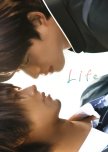
Life: Love on the Line (Director's Cut)
1 people found this review helpful
Cute but Superficial
I was a bit underwhelmed by this movie and found it spread too thinly to really realise any depth. It suffered from trying to achieve too much in too little time. The film explored the familiar territory of trying to be and feel normal in a society that does not accept you as such, but without a unique angle to give it originality. The snippets of life and relationship at different stages that we were offered did not really allow me as a viewer to connect with either character and I didn’t feel much chemistry between the actors either.The love story was sweet and cute but relied on a quirky and often hackneyed script that did not always give credibility to the emotions being expressed. There was little subtlety to be had from the direction and cinematography, which could have better utilised facial expressions and body language to convey the message and the mood instead of the bland and obvious spoken thoughts. I would strongly recommend “Old Fashion Cupcake” as a far superior watch for anyone who enjoys this type of genre and is looking for a more mature approach.
What my rating means: 6+ Some aspects of it were OK but it had serious flaws. It will pass the time but you can find something better.
Was this review helpful to you?
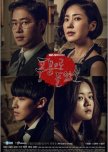
“No-one can make you feel inferior unless you give them permission.” (Eleanor Roosevelt)
If you are someone who can see through the facade to the merciless pen underneath, then you will love this drama. The writer, Jung Sung Joo, shares Jane Austen’s ability to allow characters to damn themselves through the words that emerge from their own mouths, and she reveals a feast of dangerous stupidity and ignorance, stuffed full of self importance, pompous delusion and total helplessness.The art of good satire is to clearly reveal the self interest and evil hidden behind the veil (such an apt anagram!) which the powerful draw over it. This show does that in spades. Hysterically funny at the start as it draws the lines of battle. Then it inches down the road to seriousness until, twisting the knife, the cost in suffering of the abuse of power is laid bare. However funny it is, this drama is a deeply serious comment on the use and abuse of power in a society in transition to the modern, and the underlying ruthless, self-interested principles that guide it.
The skill of the writer is so much more subtle than simply mocking and attacking. The script, in the wonderful hands of director Ahn Pan Seok, simultaneously unfolds multiple perspectives on a situation. Laughter and anger share the same space. One second judgemental, the next sympathetic towards the same character. The music (by Lee Nam Yeon) is a masterpiece of counterpoint and a character in itself, as is the suffocating environment of the house.
This biting satire on class and privilege may not make a great deal of sense to people from more notionally egalitarian societies without a history of aristocracy. The true aristocracy are not people who have wealth and power because they have made it on their own merit, or through business dealings or corruption, like the chaebol (who also feature in the story). Their wealth, power and status is totally unearned by them individually. They view it as their inalienable/natural birthright and that they are the custodians that must hand their power and values on, intact, to the next generation. Hence, Han Jung Ho’s bizarre insistence that the “children” study Machiavelli’s “The Prince” in scenes that made me cry with both laughter and despair.
Part of the humour and satire stems from the fact that the Han family is not truly aristocratic (the father is third generation nouveau riche) but they ape the values of the aristocracy. They do it with the clumsy, narrow-minded misunderstanding and thoroughness that only the aspiring can have, and in the process wreak devastating havoc on everyone else. The corrupted worship of tradition and ceremony may be ridiculous, but make no mistake, the power is real and dangerous.
The script plays on the blindness at the heart of the Han parents to the privilege that feeds their all consuming self interest. Having never known anything else they cannot think outside the box. In a wonderful moment in Ep 6, the father (Han Jung Ho) claims a spurious egalitarian credibility for himself by smugly announcing that everyone, whatever their status, shares the same style of office space in his law firm and adds, “what does being aristocratic count for these days, we’re all civilians now”. Their ignorance and ego offers much opportunity for manipulative, servile flattery which in writer Jung Sung Joo’s hands becomes a crowning work of art. Especially in the sycophantic performance of a lifetime by Kil Hae Yeon as Secretary Yang. My favourite line of hers being (in the context of imagined alopecia) “Don’t worry, Caesar didn’t have much hair either.” To which Han Jung Ho’s reply is, “Truly, you’re the only one who reads my mind.”
But behind the savagery of the satire lies a humanity that reveals how trapped the Han parents are in the vice-like grip of the world that they have created from their delusion of superiority and the personal price they are condemned to pay for continuing to uphold it.
As with the ending of Secret Love Affair, another exceptional offering by this writer and director combination, the ending is perfect. There is no trite papering over cracks, although I could have wanted the lead up to it to be better. Whoever ordered the cutting of the number of episodes late in the day is a philistine worthy of being employed at Hansong! Having said that, my only criticism is that overall the script could have done with an editor’s pencil. It is expansive in the extreme, and although it mostly holds the attention, it would have been tighter and sharper commissioned for 24 episodes, rather than the 30 it ended up being. The cast and direction are legendary and walk as close as humanly possible to the edge of the cliff without falling over.
As a piece of satire this is 20/10, but as a drama, it has a few pacing faults. I cannot recommend it enough if you are someone who likes to be challenged to think when watching. It is a superb piece of drama.
What my rating means: 9+ A drama I totally fell in love with and is endlessly re-watchable. It ticked all the boxes and had some serious wow factor. It would go on my personally recommended list.
Was this review helpful to you?

An OK script lifted by exceptional production values.
Raw edges. That sums up this show as both a compliment and a criticism. The compliments are for the cinematography, colour palettes, set design and music. The criticism is for the writing. This was an OK script that scrubbed up well because it was dressed in designer clothes. The attention to detail and co-operative work between director, lighting designer and cinematographer are what really made this show special.More money went into this than is available to the network broadcasts and it shows. The look and feel of the drama was classy and there was a great deal to feast the eyes on. It had a wonderful raw, grungy, greasy, grimy feel to the sets that you could almost smell. The colour palettes were varied, with rich blood reds and charcoals for Moo Jin’s world and ice blues and golds for the gambling den.
The biggest gong as far as I’m concerned goes to the cinematographer. Superb lighting throughout but especially the extensive use of side lighting was magical. It emphasised the chiaroscuro, creating mood and atmosphere by the truckload. The thoughtfulness was not just for wide angle shots. Sometimes, even in close shots, one face would be lit in colour and another, right next to it, almost B&W. This richness served to emphasise the stark contrast to the police station scenes which were filmed with flat lighting and no dynamics.
The cinematography was imaginative with a lot of use of low and high angles helping to build a sense of unpredictability and energy. An up-close-and-personal approach to the action scenes added to the visceral nature of this drama. It didn’t flinch from violence and there was a nod to credibility in the fight scenes which were well choreographed and numerous.If you don’t like blood and gore, this may be a bit OTT for you. Not just visually but sound-wise as well.
Add to all the above, a great OST. I loved the opening of the drama, cool and edgy, and that music really set the tone for what was to follow. Overall, the soundtrack had a rawness to it, not smoothed out or overproduced which totally complemented the other production values.
There was a lot that was good with the writing, but some parts were sloppy and not well thought through. There were amateurish aspects to the undercover scenario which were basically to serve the plot and character interactions and I could not credit them in the context of the sophisticated and ruthlessly organised gangland portrayed in the story. On a number of occasions convenient plotting stuck out like a sore thumb with inexplicable motivations and character choices. Hence my criticism of raw edges. The ending stretched my credulity a step too far and didn’t really work for me either, but that’s more personal preference.
Having said that, there was plenty to like about the solid centre of it. It successfully played with your allegiances and refused to neatly categorise good and bad. The direction gave the script space to breathe and Han So Hee’s performance relied a lot on effective silences. Time and care was also given to underlying emotional arcs, fleshing out the main characters a little more than is usual in this genre.
Han So Hee’s performance was mixed for me. I really liked her at the beginning and the end, but in the middle I think it lost the edge. Full credit though for pulling off the action scenes and physicality of the role. Park Hee Soon’s performance as Moo Jin was both convincing and persuasive. His time on screen was always compulsive viewing.
What my rating means: 8+ A great drama with interesting content and good writing, direction, acting, OST, cinematography. But didn’t quite have the requisite sparkle to bump it into my all-time fave list. Worth watching.
Was this review helpful to you?
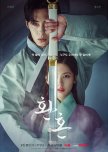
How much pouty petulant can you take?
This is the first time for me to watch a quasi-historical Korean fantasy and to be honest I was totally underwhelmed. Which is a pity because there are probably some really good ones out there. There is a simplistic naivety about this one that perfectly defines the phrase, dumbed down. It starts with a script that has zero sophistication, explains even the most self evident motivation in words and never passes over an opportunity to state the obvious. It offers bland, predictable, two dimensional characters and a direction so wooden that any dynamism the actors might have produced is squashed by a requirement to stand still and spout. And just to round it out nicely the editing in the early stages is unbelievably bad, hacking off chunks of story and throwing them roughly together. But to be fair it does have a plus side in the production values—great costumes, beautiful sets/locations and credible CGI.The rigid division between good and evil does not help. In order to create interesting tension there needs to be ambiguity and the central character, Naksu, simply doesn’t have enough real-world edge to her. Assassin? Pouty, petulant tweenager more like. And that’s the irony of it. In a story all about power, the power has been sucked out of everything: her, the story and all the characters.
It’s all far too nice with the result that nothing is too far from that bland (and to be honest, boring) middle ground. Very little light and shade, zero depth and no emotional impact. Safe, safe, safe. A let’s pretend world that has about as much tension as a teddy bears picnic.
Okay, it’s not Game of Thrones and is aimed at a totally different and much less emotionally resilient audience, but does it really have to be quite so impotent? So concerned to keep the viewer safe inside a bubble watching on from the sidelines. So scared of itself that it pulls back from every opportunity to have some balls and make an impact? Everywhere it pulls punches, particularly by not following through on the consequences of actions, either emotionally or physically.
I like Jung So Min as an actress, I thought she was very good in “Because this is my first life”, but I think she was miscast here. She lacked the necessary edge to make her character believable. The actress who plays the original form of Naksu (Go Yoon Jung), did a better job of delivering credibility to the part. Even if Naksu lost her magical power she would not have lost her attitude or her edge and this could have been an opportunity for great character development and depth. But Jung So Min’s scripted lines did nothing towards this, often being subservient when they should have been authoritative, victim when they should have been master and bland when they should have been vulnerable.
It also puzzled me why, in a world which is quasi-historical fantasy and not reality, there should be so few women occupying decision making roles. In the main it utilised boringly predictable stereotypes and missed a huge opportunity to be creative. The relationship between the M and F lead was not master/pupil but something out of a fluffy romcom with a dominant, emotionally stunted male and a petulant, subservient female. There’s nothing ostensibly wrong with writing fluffy romcom relationship dynamics, but why pretend to set it up as master/pupil and then make it unbelievable?
Ok enough, I got half way through and then had to wait for the next episode. It will be an eternal wait...
What my rating means: 5+ Meh! Don't bother, it's full of platitudes and clichés with boring characters and plots.
Was this review helpful to you?
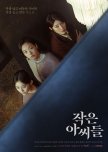
More Alice in Wonderland than Little Women
Loosely based on Little Women is the sort of loose that happens when the elastic in your trackies gives way and they drop to your ankles in a wrinkled heap. Yes they are still trackies, but not obviously so. I spent the first episode distracted by trying to unsuccessfully work out how this drama maps to the book. But I was looking in the wrong place, because, although there are parallels to be found, the map is really in the theme: the significance of money.This is fundamentally a story about money and its sidekick—power (the perennial obsessions of K-dramas, well maybe most dramas actually…). How and why it shapes lives, morals, choices and character. How poverty shapes your mentality and expectations. What you are willing to let it buy and what that does to your integrity. What risks you are willing to take to acquire and keep it. Under what conditions you will let it go. The price that your decisions exact from both you and those around you.
It puts the protectors, helpers, underminers and benefactors of the wealthy centre stage and examines their motives and desires. This is a rare perspective and I can only remember it being the centre of a drama in one other totally brilliant case, “Secret Love Affair” (if you are interested in this aspect, watch SLA, it will not disappoint, although it’s not a thriller).
As you can guess by now, it is not the plot that makes this drama special, (more about that later) although you can simply watch it as a thriller. It’s the examination and unfolding of motive behind the fight for freedom and opportunity in a world that values money over the individual. A society that insists we fight for limited resources to fulfil not only our dreams but our basic survival as well.
It’s almost impossible for us to imagine a society not based on money. But money itself is not of course concretely real, it is simply a universally accepted system of sharing resources that becomes meaningless if we lose trust in it. It is the illusion around which our reality and dreams are built. And if you are going to be fanciful, you could watch this drama as a commentary on the system’s strengths and weaknesses and the approach people take to best work it. Given that it is compulsory to engage in this system, the question as to what is morally acceptable and what is personally justified is core to the unfolding of the narrative.
Having said all that, there are problems in my opinion with how the drama is written and presented. There’s a vibe of the sisters being ordinary people (a reference to Little Women perhaps) who are unwittingly and sometimes unwillingly mixed up in something big.
However, through most of the drama, the sisters don’t display enough realistic, long-term emotional reactions to support their ordinariness in the extraordinary and violent situations that surround them. In a normal thriller we suspend disbelief because the whole thing is not related to any recognisable reality in the first place. Here, particularly in the middle section, I am being made aware of the gap between quasi normality and the world of the story with the result that I am also very aware of suspending my disbelief. And at times I found the approach is not subtle enough to make it work.
Because the women are presented as relative amateurs, there are moments that stretched my credulity to breaking point. For instance, without any preparation and seemingly without backup, they are willing to confront people they think are probably murderers. There are scenes where professionals who would never disclose information to anyone let alone the naive woman in front of them, disclose it. Etc, etc.
There’s an odd mix of the ordinary, the extraordinary and the completely surreal. The more surreal it gets the less the ordinary women at the heart of it are credible. It turns into conspiracy theory central with hallucinogens thrown in for good measure. Whether this was intended as a reflection of the madness that money creates in people is debatable.
The plot gets increasingly bizarre and takes off in strange directions and at times loses impetus. This has a fragmenting effect which leaks tension and can be frustrating. But at other times the sense of confusion and powerlessness is very effective in putting you into the shoes of the protagonists.
Overall, this is an ambitious drama and when it works it really works, and when it doesn’t, it really doesn’t. I’m someone who is prepared to put up with stuff not always working well if an attempt is being made to experiment with something new and different. I think this drama tries to do that, so I was happy to give it the benefit of the doubt, but even my goodwill was tested beyond its limits by the end.
What my rating means: 7+ A watchable drama, but nothing exceptional. Good enough to qualify for the race, but finished with the pack. The sort of thing that promises more than it delivers.
Was this review helpful to you?
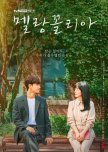
A beautiful start that fails to deliver.
It’s always interesting for someone who comes from a notionally egalitarian society (no society actually IS egalitarian!) to watch how hierarchy (an overt aspect of Korean society) is undermined in stories such as this one, whilst also being lauded by the very existence of so many chaebol dramas.The opening of the drama asks the question, can a gifted student from a lower class background trump a hardworking, corruptly privileged student from a high class background, who was born to lead and must therefore learn how to do so and shine as a leading light in the process. The mention of Eton School is not accidental. Meritocracy versus aristocracy. Both systems have their pluses and minuses, but this drama’s sympathies are firmly in the meritocracy camp.
The drama addresses the underlying attitudes that govern education and thereby society. It is reflected in the perception of mathematics as either a humanity at the service of people’s dreams and creative aspirations (aligned with the meritocracy) or as a science, a descriptor of the world that can carry technology forward and be at the service of those that need to preserve power, sustain order and create wealth (aligned with the aristocracy).
These two approaches mirror the attitudes found in the characters. The two leads consider the experience of living a fulfilling and unscripted emotional life—which may be challenging—is more important than achieving goals and upholding societal structures, as it can open doors onto new worlds and ways forward. Whereas, for the characters at the school, education is there to maintain the status quo and prepare children for the life already set out for them by moulding their attitudes and controlling their emotions. Does the world serve a human being, or does a human being serve the world?
Rigid structures provide boundaries for behaviour and many of the characters have clear plans and justifications for their actions. We may or may not agree with their reasons, but they are clear and logical. Whereas the boundaries for behaviour when governed by the murky world of freedom of emotion, are blurred. And the relationship between the two leads lives in a place of ambiguity, where professional boundaries and personal boundaries are often confused and misinterpreted, providing the viewer with plenty to reflect on.
I loved the first 6 Episodes of this show which were set in 2017. They explored ways of viewing the world, both conceptually and politically, and were filled with subtle interactions between the characters. But after the time jump to the present day these things were, in the main, sacrificed for a somewhat predictable and plodding plot. Revenge, justice and retribution took centre stage and the elements that made the drama distinctive and individual were swallowed up in a story with far too many characters complicating the direction of the narrative.
Needless to say, I found it most convincing when the drama emphasised the cost to the characters rather than the machinations of the plot. If it had focused on fewer characters and tried to say less it would have been far more effective.
There was still plenty to praise in some of the performances.
ISJ brought a sweetness and vulnerability to the character of Yoon Soo which was really appealing. And later managed to convey a strength of character with very little fuss, which I found convincing. I was struck by how she inhabited this character, rather than wore it like a coat, which was my impression of her in Search WWW. I did have my doubts about whether she could express emotion well and this drama has dispelled that. However, by the end I was wondering if she might fly in with angel's wings and a halo.
LDH was convincing as a young Seung Yoo. He managed to show the change between the adolescent and adult very clearly, but as an adult failed to impress me as much. I was not quite sure how he had arrived at his new persona.
Wu Da Vi as Sung Ye Rin, the victim of the system, had a beautifully written part that she played well, and I found her story one of the most interesting. Another performance to note was Choi Day Hoon, who gave a sensitive rendering of the financé.
In stark contrast, Jin kyung’s performance as Noh Jung Ah sprang from a world of mega-melodrama, an unnecessary hurricane leaving only devastation in its wake. Some of the responsibility for it must lie with the writer and director who can only have egged her on.
It was difficult for me to rate this drama, as I really loved the beginning but felt lukewarm about the rest of it, so I have compromised with a 7.5.
What my rating means: 7+ A watchable drama, but nothing exceptional. Good enough to qualify for the race, but finished with the pack. The sort of thing that promises more than it delivers.
Was this review helpful to you?
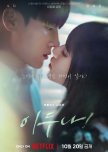
Netflix "realism" predominates.
Netflix has a definite style of youthful romance which may not be to everyone’s taste. The characters (not necessarily the plot) are more realistic and less “wholesome” or formal than the one’s coming out of Korean television. More willing to mess with the standard norms and to be concerned with the realities of things like depression. Less afraid to explore the uncertainties of youth, which make it more afraid of the finality of rejection than living with the denial of feelings or unfulfilled desires.The production style here is more akin to “Nevertheless”, although the storyline is totally different. It has a greater emphasis on showing more realistic reactions and character traits, such as smoking, swearing or anxiety attacks. The characters are often much less sure of themselves and can display behaviour that is obvious red flags, such as a dangerous tendency to want to be violent, or being caught up in abusive relationships. The actual impact that these situations have on an individual is more honestly portrayed. Often K-dramas gloss over the effects of trauma and create miraculous and timely recoveries so that the sense of a moral correctness, or fairytale happy-ever-after can be preserved. Whereas this story takes place amongst the uncertainties and messiness of life.
The director, Lee Jeong Hyo, has a string of hits in the last 5 years, including “Crash Landing on You” and “Romance is a Bonus Book”. Here he has adopted a less predictable style. He likes to observe the reactions on the actors faces and Bae Suzy is well worth looking at as she successfully conveys her inner emotions. Yang Se Jong is less convincing, but his character is lacking light and shade in the writing and it is very much a cypher and a foil for Doona. For me, the ML character is too young to be believable and as a result is played more mature. In general, his circumstances and themes were under-explored. At this length, the drama could easily have opted to focus only on the leads and gone deeper. There was plenty of material, particularly on Doona’s side to do so.
Instead, they chose to introduce secondary characters and subplots that did not hold up particularly well. There was an air of plot convenience about them with insufficient integration between their characters and the lead story. The script for these subplots, particularly between Lee Won Jun (Yang Se Jong) and his old flame, disappointingly often slipped into the banal and trite.
One annoying detail was that the continuity was bad. The weather and costumes were very mixed up. People wearing summer outfits in early spring and full tree foliage with snow. I’m prepared to overlook bright sunshine and rain, as that is often unavoidable due to a shooting schedule. But deciding on the season and dressing appropriately is something that should be unified.
There were some deliberate attempts at stylistic cinematography - especially towards the end. The breaking up the images into multiple rectangles (there’ll be a technical term for this, sorry not really my speciality). The use of a lot of close up reaction shots. It had a modern feel. Slightly smokey images, with the edge taken off by using less saturated colour, and moody lighting, nicely played into the slightly sombre tone of the piece. Greys, blues and browns predominate. The spare use of music carries emotional weight because it is unusual to have no background sounds.
Overall, for me, there was a lot to like about this production regarding the central characters and storyline, but the subplots and details let it down. It was an emotional 8, but a rational 7.5.
Was this review helpful to you?


 3
3 3
3




















